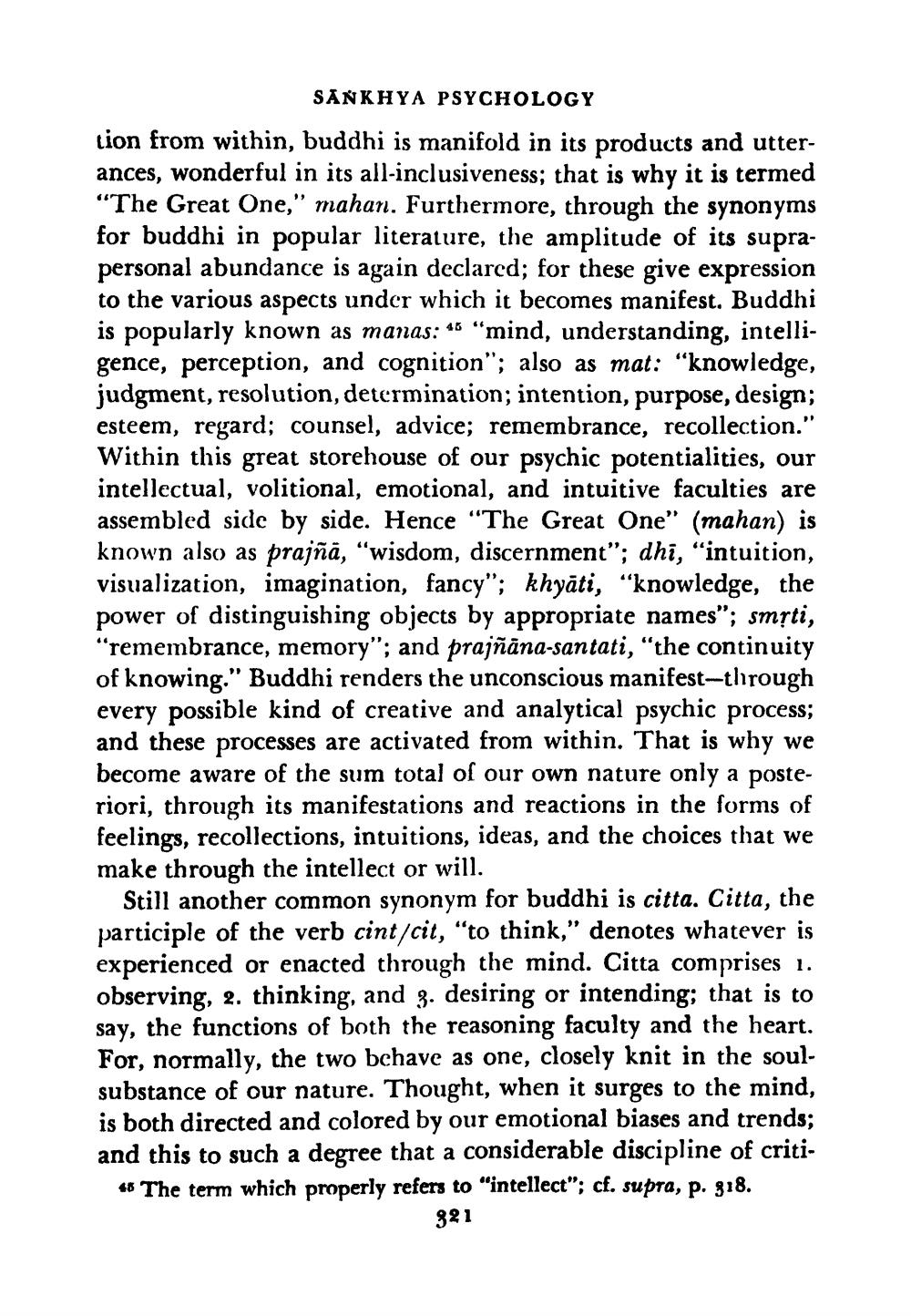________________
SANKHYA PSYCHOLOGY Lion from within, buddhi is manifold in its products and utterances, wonderful in its all-inclusiveness; that is why it is termed "The Great One," mahan. Furthermore, through the synonyms for buddhi in popular literature, the amplitude of its suprapersonal abundance is again declared; for these give expression to the various aspects under which it becomes manifest. Buddhi is popularly known as manas: 45 "mind, understanding, intelligence, perception, and cognition"; also as mat: "knowledge, judgment, resolution, determination; intention, purpose, design; esteem, regard; counsel, advice; remembrance, recollection." Within this great storehouse of our psychic potentialities, our intellectual, volitional, emotional, and intuitive faculties are assembled side by side. Hence “The Great One” (mahan) is known also as prajñā, “wisdom, discernment"; dhi, "intuition, visualization, imagination, fancy"; khyāti, "knowledge, the power of distinguishing objects by appropriate names”; smộti, "remembrance, memory”; and prajñāna-santati, “the continuity of knowing." Buddhi renders the unconscious manifest-through every possible kind of creative and analytical psychic process; and these processes are activated from within. That is why we become aware of the sum total of our own nature only a posteriori, through its manifestations and reactions in the forms of feelings, recollections, intuitions, ideas, and the choices that we make through the intellect or will.
Still another common synonym for buddhi is citta. Citta, the participle of the verb cint/cit, "to think,” denotes whatever is experienced or enacted through the mind. Citta comprises 1. observing, 2. thinking, and 3. desiring or intending; that is to say, the functions of both the reasoning faculty and the heart. For, normally, the two behave as one, closely knit in the soulsubstance of our nature. Thought, when it surges to the mind, is both directed and colored by our emotional biases and trends; and this to such a degree that a considerable discipline of criti
48 The term which properly refers to "intellect"; cf. supra, p. 318.
921




